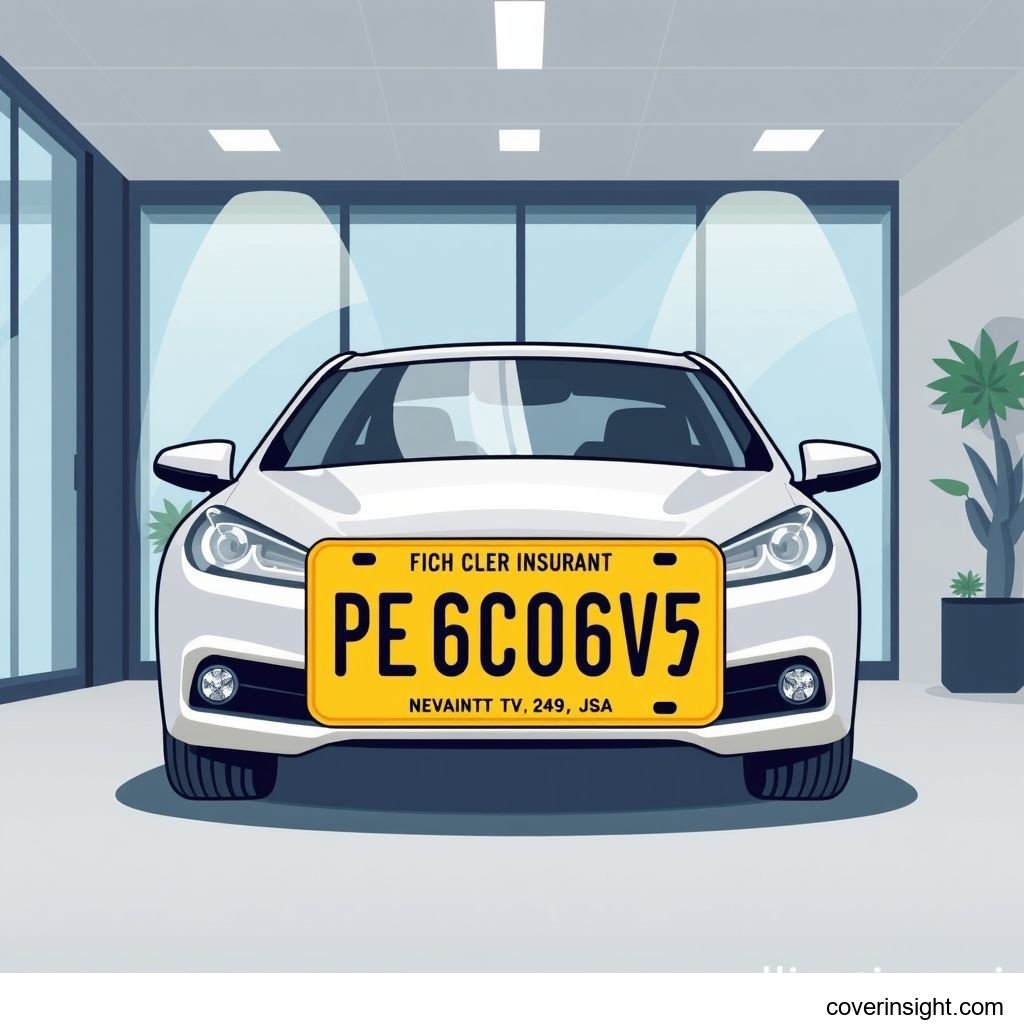Introduction
As 2025 unfolds, the landscape of auto insurance in the United States continues its dynamic evolution, with Progressive remaining a formidable player, known for its extensive reach and innovative offerings. For decades, Progressive has been a household name, synonymous with comprehensive coverage options and tools like the Name Your Price® tool, helping millions of Americans find policies that fit their budgets. Its importance in the market cannot be overstated, influencing trends and setting benchmarks for customer service and technological integration. However, the market isn't static. Emerging companies like Clearcover and GoAuto are increasingly making their mark, challenging traditional insurers with streamlined digital experiences, AI-driven pricing, and a focus on specific customer segments. This competitive environment is pushing all providers to become smarter, more efficient, and more responsive to the modern driver's needs, ushering in an era of truly smart auto insurance.
Coverage Details
What’s Included
When you secure an auto insurance policy, whether from Progressive, Clearcover, or GoAuto, you're typically looking at a suite of protections designed to safeguard you financially after an accident or incident. Standard policies often include liability coverage, which is crucial and often legally mandated. This covers damages and injuries you cause to others. Then there's collision coverage, which pays for damage to your own vehicle resulting from a collision with another car or object, regardless of fault. Comprehensive coverage steps in for non-collision events like theft, vandalism, fire, or natural disasters.
Beyond these core components, many policies offer uninsured/underinsured motorist (UM/UIM) coverage, a vital protection in states like Texas, where, according to a recent report by the Insurance Information Institute (III), roughly 14.1% of drivers were uninsured in 2022. This coverage can be a lifesaver if you're hit by a driver who lacks adequate insurance. Other common additions include medical payments (MedPay) or personal injury protection (PIP), which cover medical expenses for you and your passengers, regardless of who's at fault. Progressive, for example, is also a leading provider when it comes to business-related vehicle coverage, as highlighted in "Texas Business Insurance 2025: Progressive & State Farm Guide," extending its reach beyond personal autos.
Common Exclusions
While auto insurance provides a robust safety net, it’s not a blank check. Understanding common exclusions is key to avoiding unpleasant surprises. Policies generally do not cover intentional damage or injuries you inflict deliberately. Also, using your personal vehicle for commercial purposes without proper commercial auto insurance can lead to claim denial – a common pitfall for contractors. This is why specialized policies like those discussed in "Essential Contractor Insurance: Progressive & Texas 2025" are so vital. Moreover, damage caused by war or nuclear events is typically excluded. Wear and tear, mechanical breakdown, or damage due to poor maintenance are also not covered; that’s what your car warranty is for, not your insurance. Some policies may also have specific exclusions for customized parts or aftermarket modifications unless explicitly added and paid for. For example, if you've turned your daily driver into a track-day warrior, your standard policy likely won't cover damage incurred during a race.
Cost Analysis
Price Factors
The premium you pay for auto insurance is rarely a one-size-fits-all figure; it's a complex calculation based on numerous variables. Your driving record is paramount – a clean record with no accidents or violations will typically net you lower rates. Your age and experience also play a significant role, with younger, less experienced drivers generally paying more. The type of vehicle you drive matters too; expensive, high-performance cars are costlier to insure due to higher repair costs and theft risk.
Where you live impacts rates, reflecting local accident rates, theft statistics, and even weather patterns. For instance, an urban area with high traffic density might see higher premiums than a quiet rural town. Your credit score can also influence premiums in many states, as insurers often correlate creditworthiness with claim frequency. Furthermore, the coverage limits and deductibles you choose directly affect the price – higher deductibles usually mean lower premiums, but you'll pay more out-of-pocket if you file a claim. Companies like Clearcover leverage AI to analyze these factors even more granularly, aiming to provide hyper-personalized quotes.
Saving Tips
Navigating the cost of auto insurance doesn’t have to feel like biting the bullet every month. There are plenty of ways to drive down your premiums. First and foremost, shop around. Don't just stick with your current provider out of habit. Get quotes from multiple insurers, including Progressive, Clearcover, and GoAuto, as well as local agencies. Comparing policies can reveal significant savings, as pricing models vary widely.
Next, consider increasing your deductible. If you can comfortably afford to pay more out-of-pocket after a claim, raising your deductible will lower your monthly premium. Bundling your auto insurance with other policies, like homeowners or renters insurance, is another classic money-saver; many companies offer multi-policy discounts. Maintaining a clean driving record is always beneficial, as good driver discounts are plentiful. Companies like Progressive offer telematics programs (e.g., Snapshot®) that monitor your driving habits and can reward safe drivers with discounts. Lastly, inquire about discounts for things like good student grades, anti-theft devices, low mileage, or even professional affiliations. Remember, being penny-wise and pound-foolish on coverage can backfire, so always ensure you have adequate protection. For comprehensive protection tailored for specific needs, like those of a contractor, exploring options like those in "Texas Contractor Insurance: BOP & Progressive Guide 2025" can also uncover cost-effective solutions.
FAQs
-
How much does progressive cost?
The cost of Progressive auto insurance varies widely depending on numerous factors, including your driving history, vehicle type, location, and the specific coverages and deductibles you select. It can range from under $100 to several hundred dollars per month. The best way to get an accurate estimate is to obtain a personalized quote directly from their website or an agent.
-
What affects premiums?
Many factors influence premiums, including your driving record (accidents, violations), age, gender, geographic location, vehicle make and model, annual mileage, credit score, chosen coverage limits, deductibles, and available discounts. Each insurer weighs these factors differently.
-
Is it mandatory?
Yes, auto liability insurance is mandatory in almost every U.S. state. While the specific minimum requirements vary by state, nearly all require drivers to carry at least bodily injury liability and property damage liability coverage. For precise requirements, you can check with your local State Insurance Department.
-
How to choose?
Choosing the right auto insurance involves balancing cost with coverage needs. Start by assessing your financial situation and risk tolerance. Research multiple providers, compare quotes, and pay close attention to customer service reviews. Consider digital-first options like Clearcover if you prefer a seamless online experience, or traditional giants like Progressive for extensive agent support. Look for companies that offer good value for the coverage provided, not just the lowest price.
-
Consequences of no coverage?
Driving without mandatory auto insurance can lead to severe consequences, including hefty fines, suspension of your driver's license and vehicle registration, impoundment of your vehicle, and even jail time in some states. Moreover, if you cause an accident, you'll be personally responsible for all damages and medical bills, which can amount to hundreds of thousands of dollars, potentially leading to financial ruin. As the National Association of Insurance Commissioners (NAIC) consistently advises, having adequate coverage is not just a legal obligation but a crucial financial safeguard.
Author Insight & Experience
As someone living in the U.S. who has navigated the sometimes-murky waters of auto insurance for years, I've seen firsthand how the industry has shifted from a purely transactional model to one that increasingly values personalization and technology. My own experience, especially in states like Texas, underscores the importance of not just having coverage, but having the right coverage. It's easy to get caught up in chasing the lowest premium, but truly smart auto insurance in 2025 isn't just about saving a few bucks upfront. It's about securing peace of mind, knowing that if you're ever in a fender-bender or face a major claim, your policy has your back. The rise of companies like Clearcover, with their focus on tech, and Progressive's ongoing innovation with telematics, signifies a future where your driving habits, not just your demographic data, play a larger role in your rates. It’s a game-changer for responsible drivers, offering a more equitable approach to premiums. Just as navigating complex health insurance options on Healthcare.gov requires careful consideration, so too does choosing robust auto coverage that protects your assets and your future.








Comments